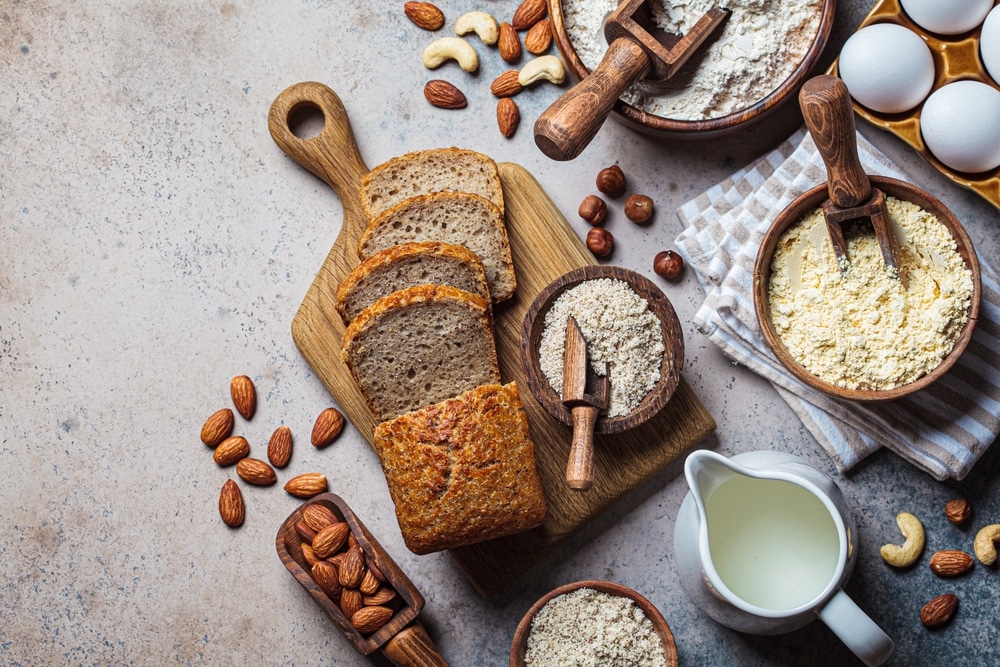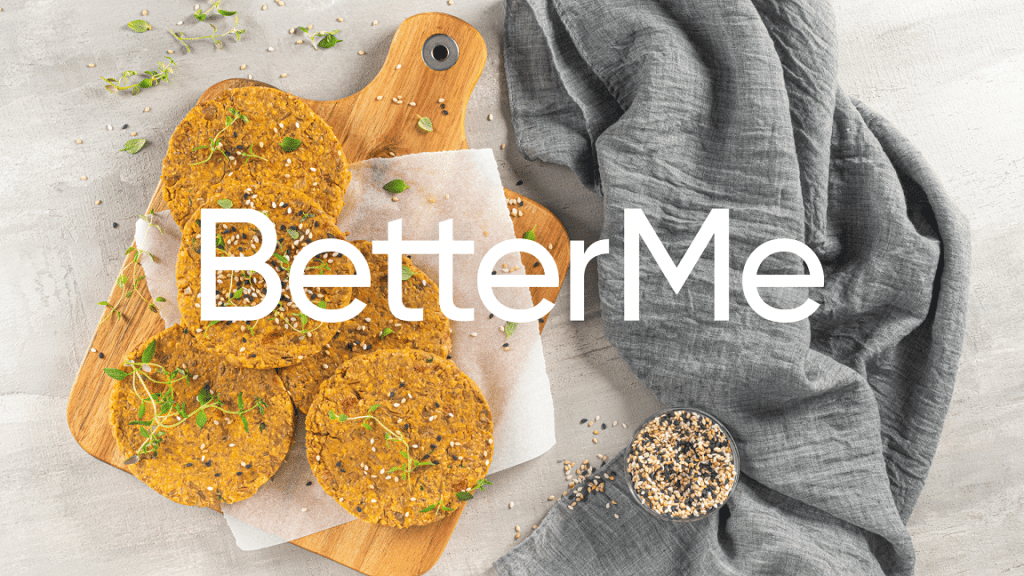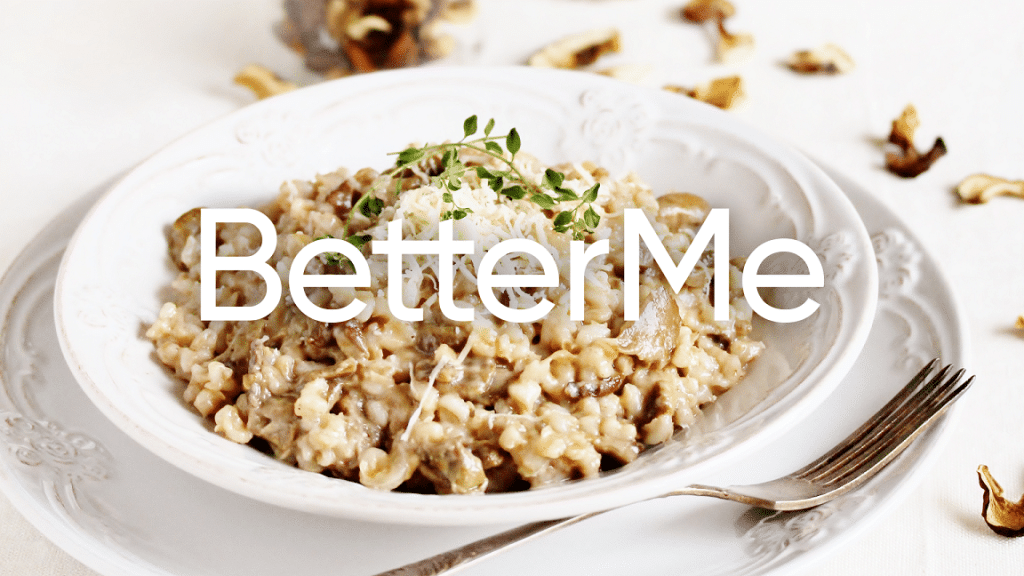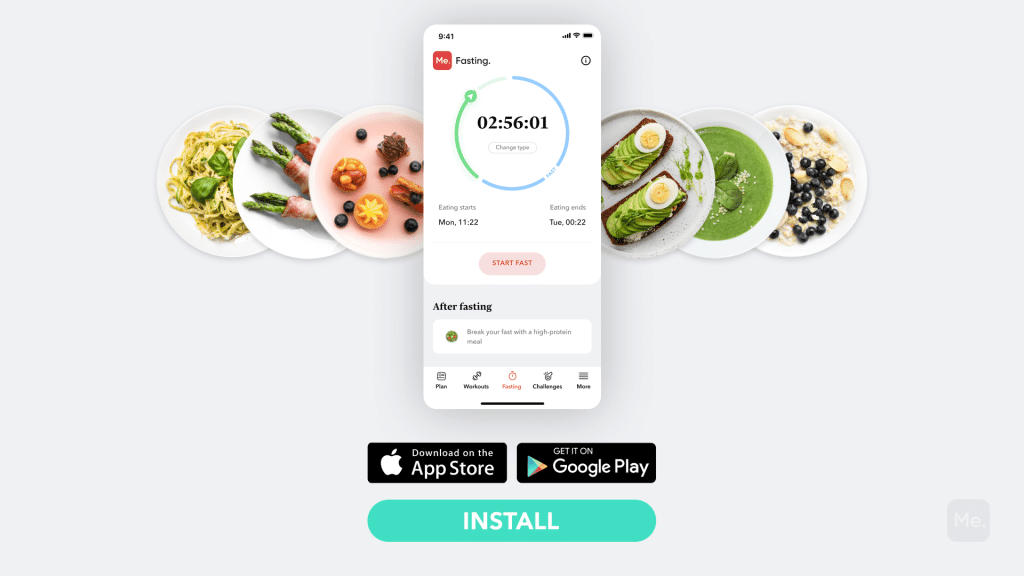Labeling food “good” or “bad” is unhelpful and unproductive. It leads to demonizing certain foods and creates a restrictive mindset around eating. Instead of thinking of foods as “good” or “bad,” it’s more helpful to think of them as more nutritious or less nutritious. This way of thinking opens up your options and allows you to make more informed choices about what you eat. Bread, depending on how it’s made, can fall in the “less nutritious” category. Many people are choosing to ditch starchy, sugary white bread altogether in favor of alternatives that are lower in carbs and calories and higher in protein and fiber. Here are some delicious and nutritious bread alternatives that you can enjoy for breakfast, lunch, or a snack.
What Is A Good Substitute For Bread?
A good substitute for bread has the following qualities:
Low Calories
When you’re watching your weight, you want to be mindful of the calorie content in the foods you’re eating. Bread, especially the refined kind, has ingredients that can quickly add up in calories.
For example, one slice of wheat bread has about 77 calories while one slice of white bread contains around 98 calories (2) (3).
Depending on how many slices and what you eat with the bread these numbers can increase significantly. Swapping out your bread for something that has fewer calories can aid your weight loss efforts.
High Protein
If you’re an athlete or bodybuilder, you know that protein is essential for building muscle (10). Seniors also benefit from a high-protein diet as it protects their muscles from age-related deterioration (9).
Good substitutes for bread have more protein than bread so that you can get the nutrients you need without all the carbs. More protein also means that you’ll feel fuller longer, so you’re less likely to snack throughout the day (16).
High Fiber
Fiber is an indigestible carbohydrate that is essential for a healthy digestive system. It’s also beneficial for maintaining a healthy weight because it helps you feel full and satisfied after eating (7).
A high-fiber diet has also been linked to a lower risk of heart disease, stroke, and type II diabetes (11).
The refining process white flour goes through strips away most of the fiber found in wheat, which is why white bread has such a low fiber content (20). Healthier bread substitutes have a higher fiber content to help you reach your daily fiber needs.
Read More: Does Bread Make You Fat? Here’s What You Need To Know About Food And Weight Gain
Healthy Fats
Most bread is made with refined flour, which is stripped of its natural oils. This leaves the bread devoid of healthy fats. Most of the fat found in bread is unhealthy, added saturated fat. This type of fat can increase your risk of heart disease and other chronic health conditions (18).
Healthy fats are an essential part of a healthy diet. They help you absorb vitamins, maintain cell membranes, and protect your organs. They also help you feel full and satisfied after eating (1).
Bread substitutes that contain healthy fats will help you reach your daily fat needs while also providing other health benefits.
These include monounsaturated and polyunsaturated fats, which can help lower your cholesterol levels and reduce your risk of heart disease (12) (17).
Low Carbs
Refined carbs like those found in white bread are stripped of these nutrients. This leaves them with little nutritional value. For people with diabetes, eating too many refined carbs often raises blood sugar levels (4).
If you’re trying to limit your carb intake, look for substitutes that are lower in carbs. This will help you reach your daily carb goals without sacrificing taste or nutrition.
What Are Some Alternatives To Wheat Bread?
Below are some nutritious substitutes for wheat bread that you can enjoy:
1. Sprouted Grain Bread
Sprouted grain bread is made from whole grains that have been sprouted and then ground into flour. The sprouting process breaks down the carbohydrates and makes them easier to digest. This bread is also higher in certain vitamins, minerals, and antioxidants than traditional wheat bread.
Ezekiel bread is a popular example of sprouted grain bread. It comes in many different flavors and can be found in most health food stores.
2. Rye Bread
Rye bread is made with rye flour, which is a whole grain. It’s denser and darker than wheat bread and has a slightly sour taste.
Rye bread is higher in fiber and nutrients than wheat bread. It also contains lignans, which are plant compounds that have been linked to a lower risk of certain types of cancer (15).
3. Sourdough Bread
Sourdough bread is made with fermented wheat dough that contains live bacteria. This fermentation process breaks down the sugars in the flour, which makes it easier to digest (14). The bacteria don’t survive the baking process, but they do produce lactic acid, which may have its own gut health benefits.
4. Oopsie Bread
Oopsie bread is a low-carb and gluten-free alternative to wheat bread. It’s made with eggs, cream cheese, and oat fiber or coconut flour.
Its texture is similar to that of a sponge cake, and it can be used in many different ways. You can make sandwiches with it, use it as a pizza crust, or even eat it plain as a snack.
If you wish to cinch your waist, tone up your bat wings, blast away the muffin top – our fitness app was created to cater to all your needs! BetterMe won’t give excess weight a chance!
5. Corn Tortillas
The perfect tortilla is soft but firm enough to hold all your fillings without falling apart. Corn tortillas are made with ground corn and water. They’re a good source of fiber and can be used in place of wheat bread for a gluten-free option.
Corn tortillas are lower in calories than wheat bread (or flour tortillas) and can be a healthier choice if you’re watching your weight.
You can easily make 2-ingredient tortillas at home or buy them pre-made at the store.
6. Rice Paper Wraps
Rice paper wraps are made from rice flour and water. They’re thin, translucent sheets that are used in Vietnamese cuisine.
They can be used in place of wheat bread for sandwiches or wraps. They’re also a good option for making spring rolls or summer rolls.
Rice paper wraps are gluten-free and lower in calories than wheat bread.
7. Cauliflower Bread
Cauliflower bread is a low-carb alternative to wheat bread. It’s made with cauliflower, eggs, cheese, and spices.
Cauliflower bread has a similar texture to wheat bread, but it’s much lower in carbs. It’s a good option for people with celiac disease or non-celiac gluten sensitivity.
8. Sweet Potato Toast
Sweet potato toast is a healthy alternative to wheat bread. It’s made by slicing sweet potatoes into thin pieces and then toasting them.
You can top sweet potato toast with anything you would put on regular toast, such as peanut butter, avocado, or eggs.
Sweet potato toast is a good source of vitamins and minerals. It’s also lower in carbs and higher in fiber than white bread.
9. Lettuce And Leafy Greens
Lettuce and leafy greens can be used in place of wheat bread for sandwiches and wraps. They’re a good source of vitamins and minerals, and they’re low in calories.
You can use any type of lettuce or leafy green for this purpose. Some good options include iceberg lettuce, romaine lettuce, and spinach. For fillings, you can use meats, cheeses, or vegetables.
10. Portobello Mushroom Caps
Portobello mushroom caps make a great alternative to wheat bread. They’re large mushrooms with a flat surface that’s perfect for holding all your sandwich fixings.
Portobello mushrooms are a good source of vitamins and minerals. They’re also low in calories and fat.
You can find portobello mushroom caps at most grocery stores. Look for ones that are dark brown and have a smooth surface.
Read More: Secrets Of Eating Healthy While Traveling
11. Eggplant Slices
Eggplant slices make a great alternative to wheat bread. They’re low in calories and carbs, and they’re a good source of vitamins and minerals.
To make eggplant slices, simply slice an eggplant into thin pieces. You can then use them in place of wheat bread for sandwiches or wraps.
Eggplant slices can also be grilled or baked.
12. Zucchini Slices
Zucchini slices are a healthy alternative to wheat bread. They’re low in calories and carbs, and they’re a good source of vitamins and minerals.
To make zucchini slices, simply slice zucchini into thin pieces. You can then use them in place of wheat bread for sandwiches or wraps.
Zucchini slices can also be grilled or baked.
13. Almond Bread
Almond bread is a healthy alternative to wheat bread. It’s made with almond flour, eggs, and spices. It’s perfect for those following a Paleo diet as it’s grain-free and gluten-free.
Almond bread is high in protein and fiber. It’s also a good source of vitamins and minerals.
Texture-wise, it’s closest to “real” bread out of all the alternatives on this list.
14. Oatcakes
Oatcakes are a type of Scottish biscuit that’s made with oat flour, butter, and salt. They can be eaten on their own or used in place of wheat bread.
Oatcakes are a good source of fiber. They’re also low in calories and have a high protein content.
15. Cauliflower Pizza Crust
The cauliflower pizza crust is a healthy alternative to wheat flour pizza dough. It’s made with cauliflower, cheese, and spices.
Cauliflower pizza crust is lower in carbs than traditional pizza dough. It’s also a good source of protein and fiber.
While the taste and texture of cauliflower pizza crust is different from traditional pizza dough, it’s a good option for those looking for a low carb alternative.
Benefits Of Bread Alternatives
There are several benefits of bread alternatives:
Avoid Carb Crash
The dreaded post-lunch energy slump at work is often caused by the sugar crash that comes from eating too many refined carbs. By swapping out wheat bread for a low-carb alternative, you might avoid this problem and maintain steady energy levels throughout the day.
Fewer Sugar Cravings
If you have a sweet tooth, you may find that you crave sugary foods more often when you eat white bread. This is because white bread is made with refined flour, which can cause blood sugar spikes. These spikes can then lead to sugar cravings (4).
Bread alternatives are generally made with whole grains or other unrefined ingredients, which means they won’t cause these blood sugar spikes. This can help to reduce sugar cravings and promote a healthier diet overall.
BetterMe is your fast-track ticket to a long-lasting weight loss! Tailor your fitness journey and maximize your results with just a couple of swipes!
Fewer Allergies
Wheat allergies are becoming more and more common. If you have a wheat allergy, you may experience symptoms such as hives, wheezing, and swelling of the face and throat. In severe cases, wheat allergies can even cause anaphylaxis, which is a life-threatening reaction (19).
Some bread alternatives are made with ingredients that won’t trigger a wheat allergy. This makes them a good option for those with wheat allergies or sensitivities.
Improved Gut Health
The negative effects of a high-sugar diet on gut health are well-documented. Consuming too much sugar can lead to an alteration in the makeup of bacteria in the gut. This can then lead to digestive problems, such as bloating, constipation, and diarrhea.
Bread alternatives are generally made with whole grains or other fiber-rich ingredients. This makes them a good choice for those looking to promote gut microbial diversity and improve their gut health (8).
Reduced Risk Of Chronic Disease
Eating a diet high in refined carbs has been linked to an increased risk of chronic diseases, such as heart disease and type 2 diabetes (6). This may be because refined carbs can cause spikes in blood sugar levels and weight gain.
Weight gain and its metabolic effects can then lead to inflammation, which is a major factor in the development of chronic diseases (5).
Bread alternatives are generally made with whole grains or other unrefined ingredients. This usually means they won’t cause these spikes in blood sugar levels, and can help you maintain a healthy weight. This might help to reduce the risk of chronic diseases.
Conclusion
There are many bread alternatives available that can be used in place of wheat bread. These alternatives are thought to be healthier and might provide several benefits, such as avoiding a carb crash, reducing sugar cravings, and more.
Get your personalized
meal plan!
DISCLAIMER:
This article is intended for general informational purposes only and does not serve to address individual circumstances. It is not a substitute for professional advice or help and should not be relied on for making any kind of decision-making. Any action taken as a direct or indirect result of the information in this article is entirely at your own risk and is your sole responsibility.
BetterMe, its content staff, and its medical advisors accept no responsibility for inaccuracies, errors, misstatements, inconsistencies, or omissions and specifically disclaim any liability, loss or risk, personal, professional or otherwise, which may be incurred as a consequence, directly or indirectly, of the use and/or application of any content.
You should always seek the advice of your physician or other qualified health provider with any questions you may have regarding a medical condition or your specific situation. Never disregard professional medical advice or delay seeking it because of BetterMe content. If you suspect or think you may have a medical emergency, call your doctor.
SOURCES:
- A healthy approach to dietary fats: understanding the science and taking action to reduce consumer confusion (2017, biomedcentral.com)
- Calories in Wheat Bread (n.d., nutritionix.com)
- Calories in White Bread (n.d., nutritionix.com)
- Carbohydrates and Blood Sugar (n.d., hsph.harvard.edu)
- Chronic inflammation in the etiology of disease across the life span (2019, nature.com)
- Death by Carbs: Added Sugars and Refined Carbohydrates Cause Diabetes and Cardiovascular Disease in Asian Indians (2016, ncbi.nlm.nih.gov)
- Dietary fibre and satiety (2007, onlinelibrary.wiley.com)
- Dietary Fibre Modulates the Gut Microbiota (2021, mdpi.com)
- Dietary protein and muscle in older persons (2014, ncbi.nlm.nih.gov)
- Dietary Protein and Muscle Mass: Translating Science to Application and Health Benefit (2019, mdpi.com)
- Effects of Dietary Fiber and Its Components on Metabolic Health (2010, mdpi.com)
- Effects of dietary saturated, monounsaturated, and n−3 fatty acids on blood pressure in healthy subjects (2006, academic.oup.com)
- Effects of Sweeteners on the Gut Microbiota: A Review of Experimental Studies and Clinical Trials (2019, academic.oup.com)
- Microbial Fermentation and Its Role in Quality Improvement of Fermented Foods (2020, mdpi.com)
- Naturally Lignan-Rich Foods: A Dietary Tool for Health Promotion? (2019, mdpi.com)
- Protein, weight management, and satiety (2008, academic.oup.com)
- Saturated Fats Versus Polyunsaturated Fats Versus Carbohydrates for Cardiovascular Disease Prevention and Treatment (2016, ncbi.nlm.nih.gov)
- Saturated Fatty Acids and Cardiovascular Disease: Replacements for Saturated Fat to Reduce Cardiovascular Risk (2017, mdpi.com)
- Wheat allergy: diagnosis and management (2016, ncbi.nlm.nih.gov)
- Whole Grains (n.d., hsph.harvard.edu)











